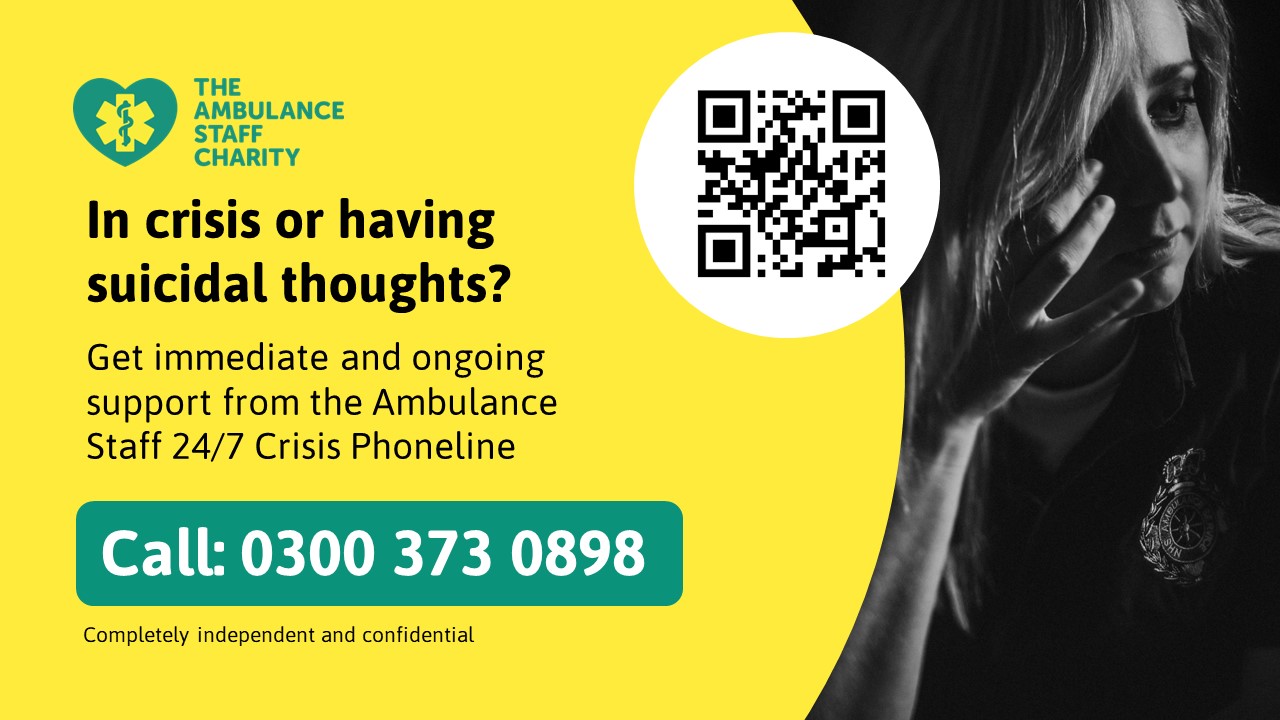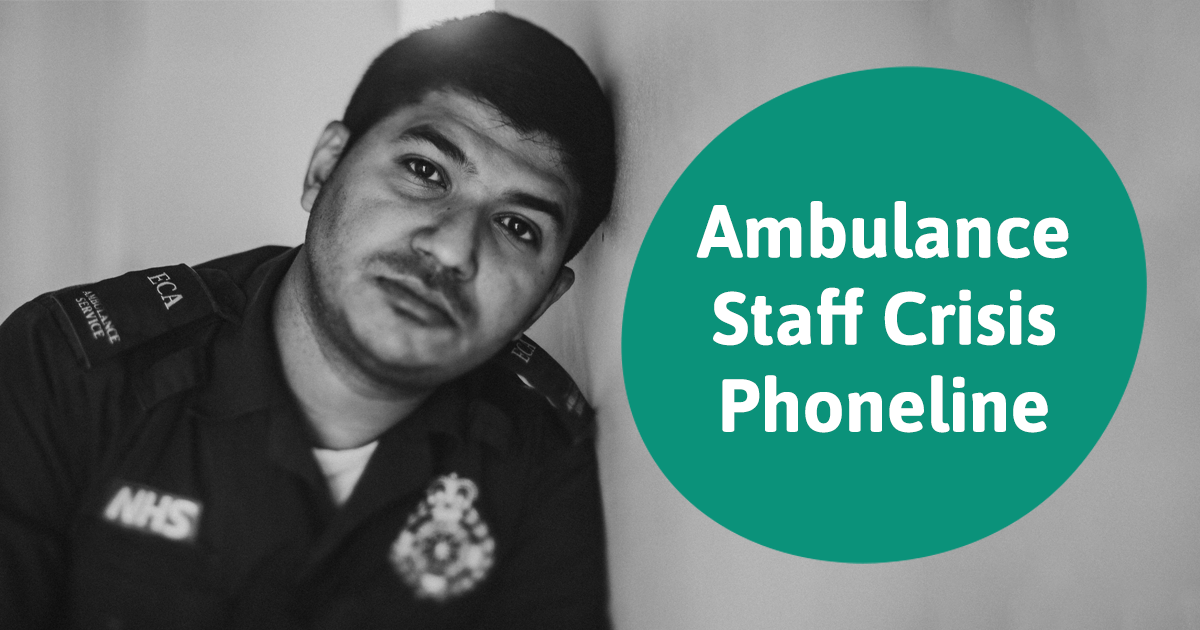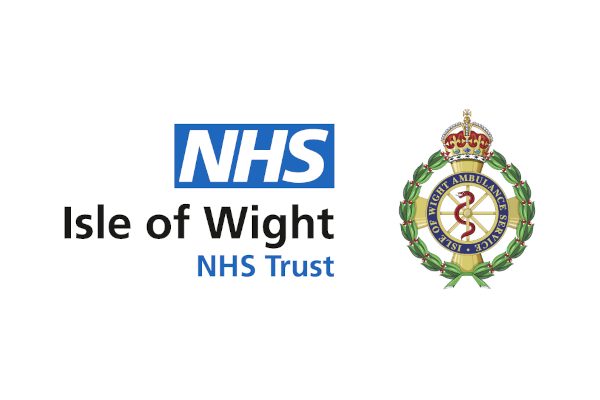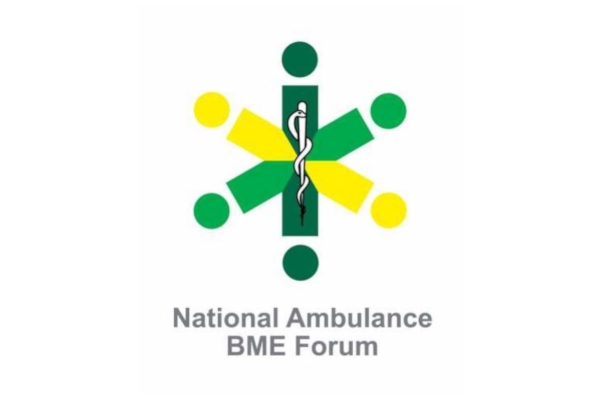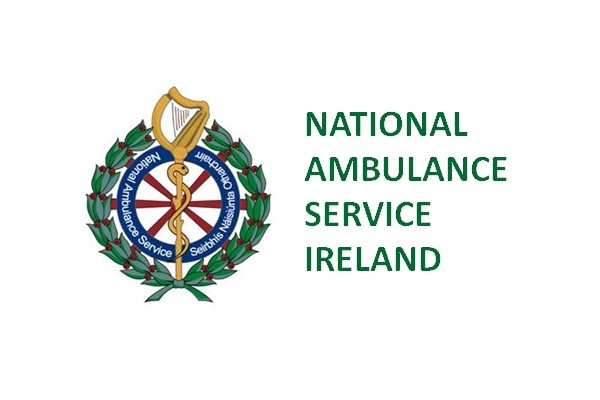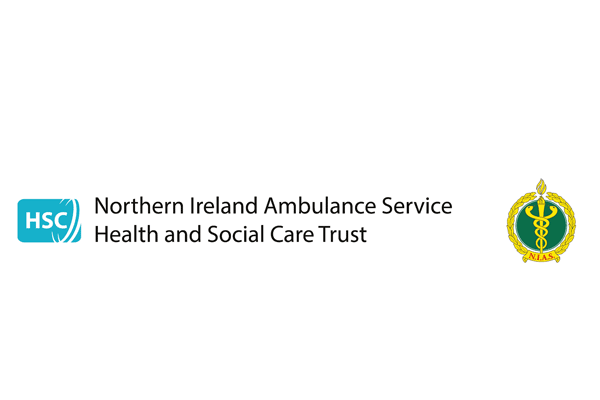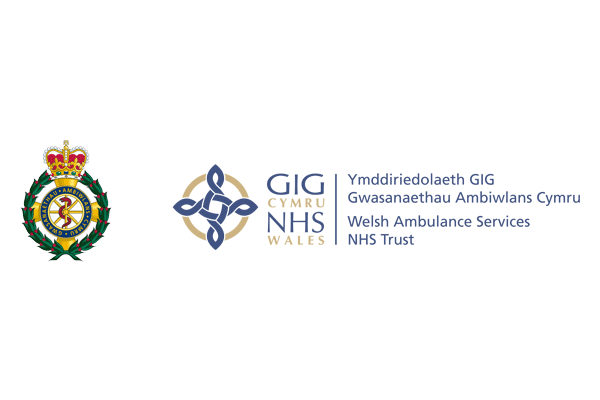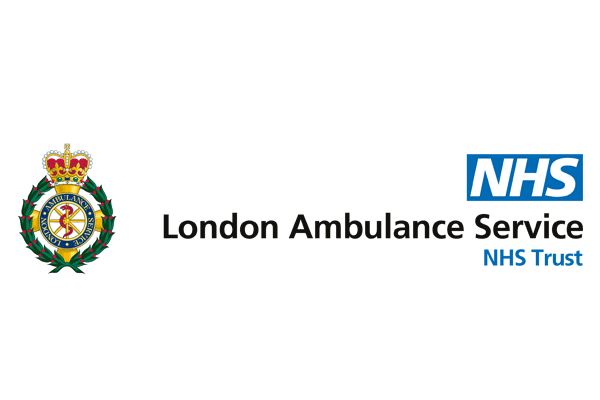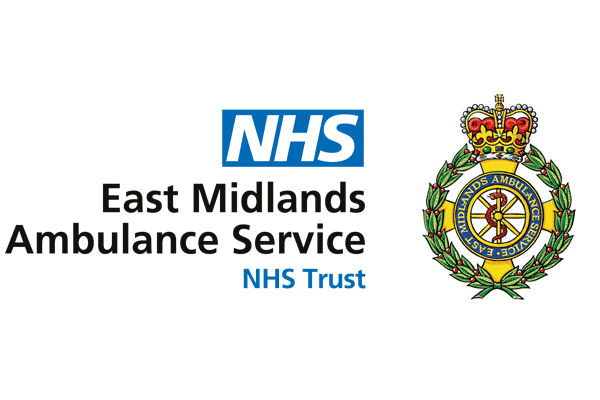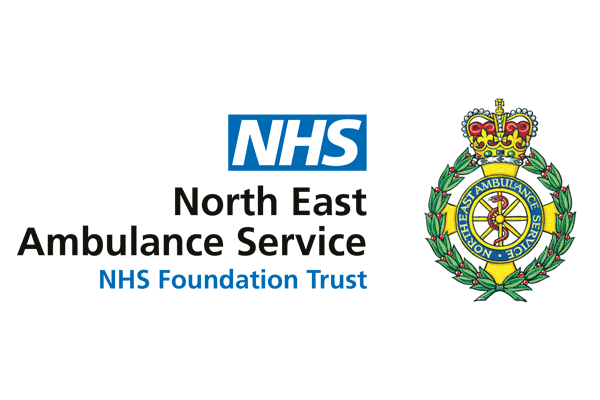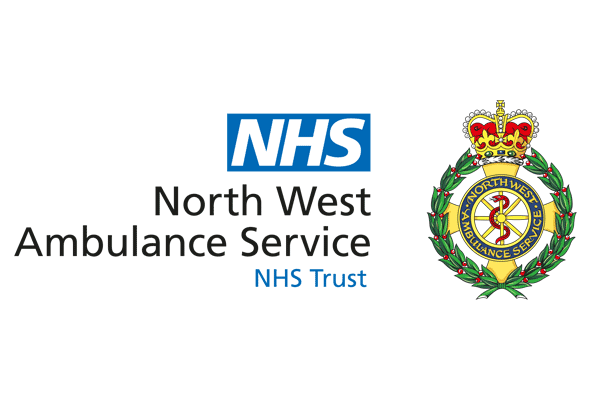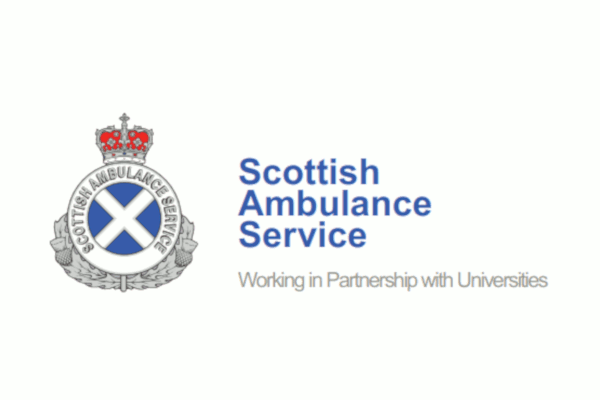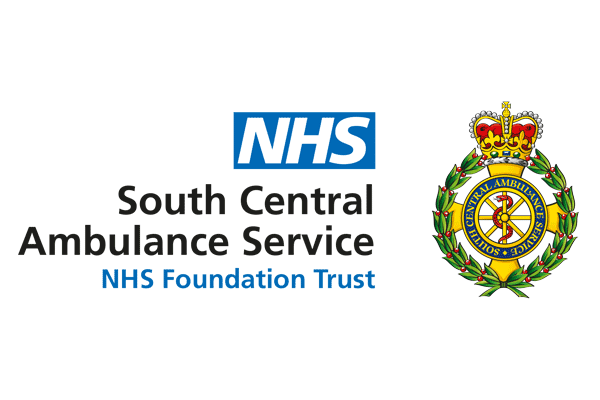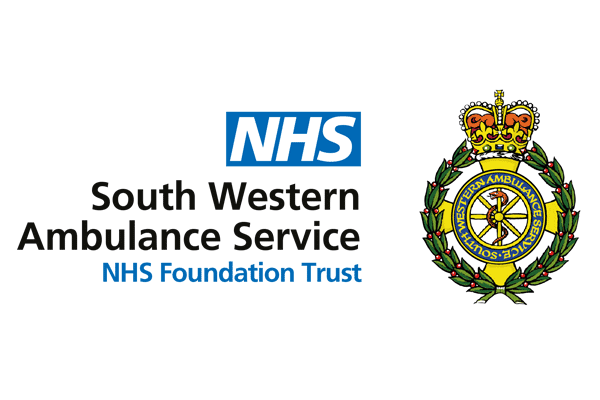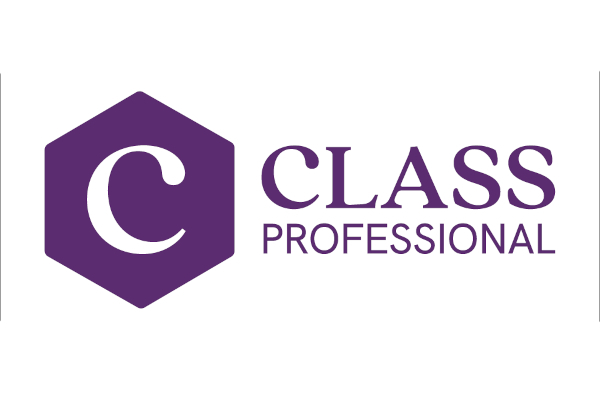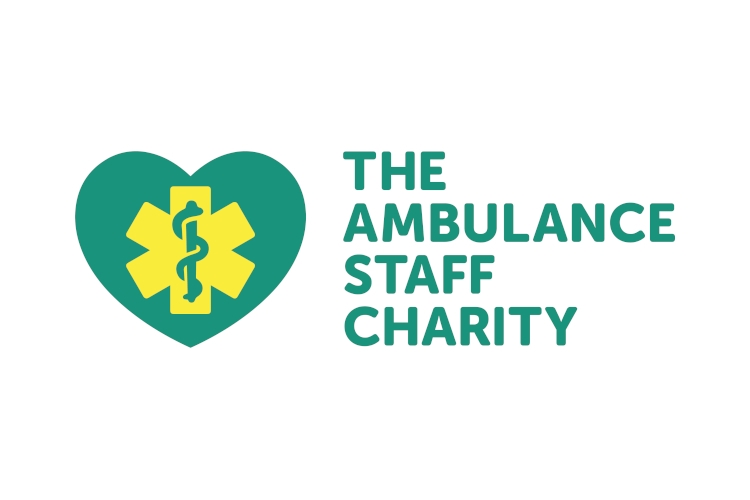A ground-breaking 24-hour crisis phoneline providing immediate and ongoing suicide and mental health crisis care for UK ambulance staff and volunteers has helped 410 people during some of the most challenging times of their lives, in just its first year of operation.
Of these, says TASC, 168 ambulance staff who were actively planning to take their own life are still alive after calling the Ambulance Staff Crisis Phoneline for professional support and 68 lives have been saved from imminent danger.
The service has been so successful that the same service was launched by the Fire Fighter’s Charity in November 2023, while the Police Wellbeing Service (Oscar Kilo) are planning to do the same.
Launched and managed by The Ambulance Staff Charity (TASC), The Ambulance Staff Crisis Phoneline (www.theasc.org.uk/crisis) was commissioned and co-designed by the Association of Ambulance Chief Executives (AACE) using funding from NHS England.
The aim is to give the UK’s under-pressure ambulance staff and volunteers an independent and confidential place to seek mental health support, 24 hours a day, 365 days a year.
A short film about it can be viewed here.
Offering much more than a listening ear service, the Ambulance Staff Crisis Phoneline provides in-the-moment help to navigate callers to a place of safety and stability, with the service then seamlessly transforming into a consistent and ongoing intensive support programme to reduce callers’ suicidal ideation, increase resilience, and most importantly, keep them safe.
TASC’s collaboration with AACE and the ambulance services has been instrumental in making the first year a success and ensuring the ‘ambulance family’ know they have a dedicated place to go if they’re struggling with suicidal thoughts.
Anna Parry, Managing Director of AACE, said:
Using funding gratefully received from NHS England, we commissioned TASC to deliver this 24/7 crisis line to primarily support people within the UK NHS ambulance sector experiencing suicidal ideation, but also to provide somewhere people could signpost their colleagues, friends and family members who work or volunteer in the ambulance service to any time, day or night.
We are really pleased that the line has been used by people in crisis and that immediate and ongoing support has been offered and accepted. We would strongly advocate people seeking help when in mental health crisis – either through this crisis line or elsewhere – and encouraging their colleagues and friends to do the same – please help us spread the word.
Karl Demian, TASC’s Chief Executive Officer, says:
The strength of the service is the model on which it is based, the consistency of support provided by highly skilled and experienced people, the confidentiality the service provides, and the collaboration with AACE and ambulance services that has made it possible and at its core is compassion for the person in their time of crisis.
The service has continued to develop throughout the year. When we realised that around 40% of callers were in crisis but didn’t identify as experiencing suicidal thoughts, we knew we needed to do something to protect them.
We adapted our approach to ensure that following their initial support call, a counsellor would check-in at a later date to ensure they continued to be safe, recognising the importance of prevention. So far 61 additional check-ins have been made.
The service has also delivered 528 intensive Collaborative Assessment and Management of Suicidality (CAMS) sessions as around three in five callers are experiencing suicidal thoughts and are identified as needing longer-term support.
Of those who entered the CAMS programme, just over a quarter were identified as needing additional sessions once the programme ended and so far TASC has funded 169 additional mental health sessions for them.

